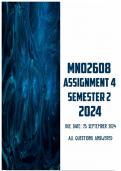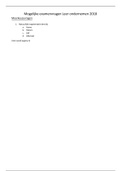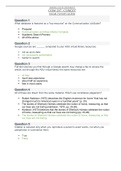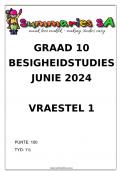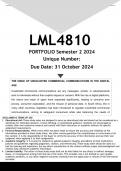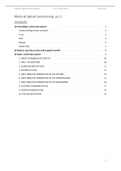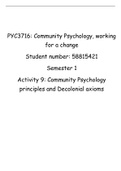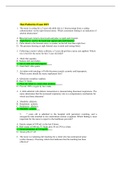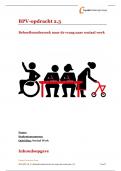Exam (elaborations)
MNO2608 Assignment 4 Semester 2 2024 | Due 25 September 2024
- Institution
- University Of South Africa (Unisa)
MNO2608 Assignment 4 Semester 2 2024 | Due 25 September 2024. All questions answered. Question 1 1.1. An Approved Inspection Authority (AIA) conducts investigations using specialised knowledge and equipment. Advise the occupational hygienists of platinum refineries on criteria for evaluat...
[Show more]
